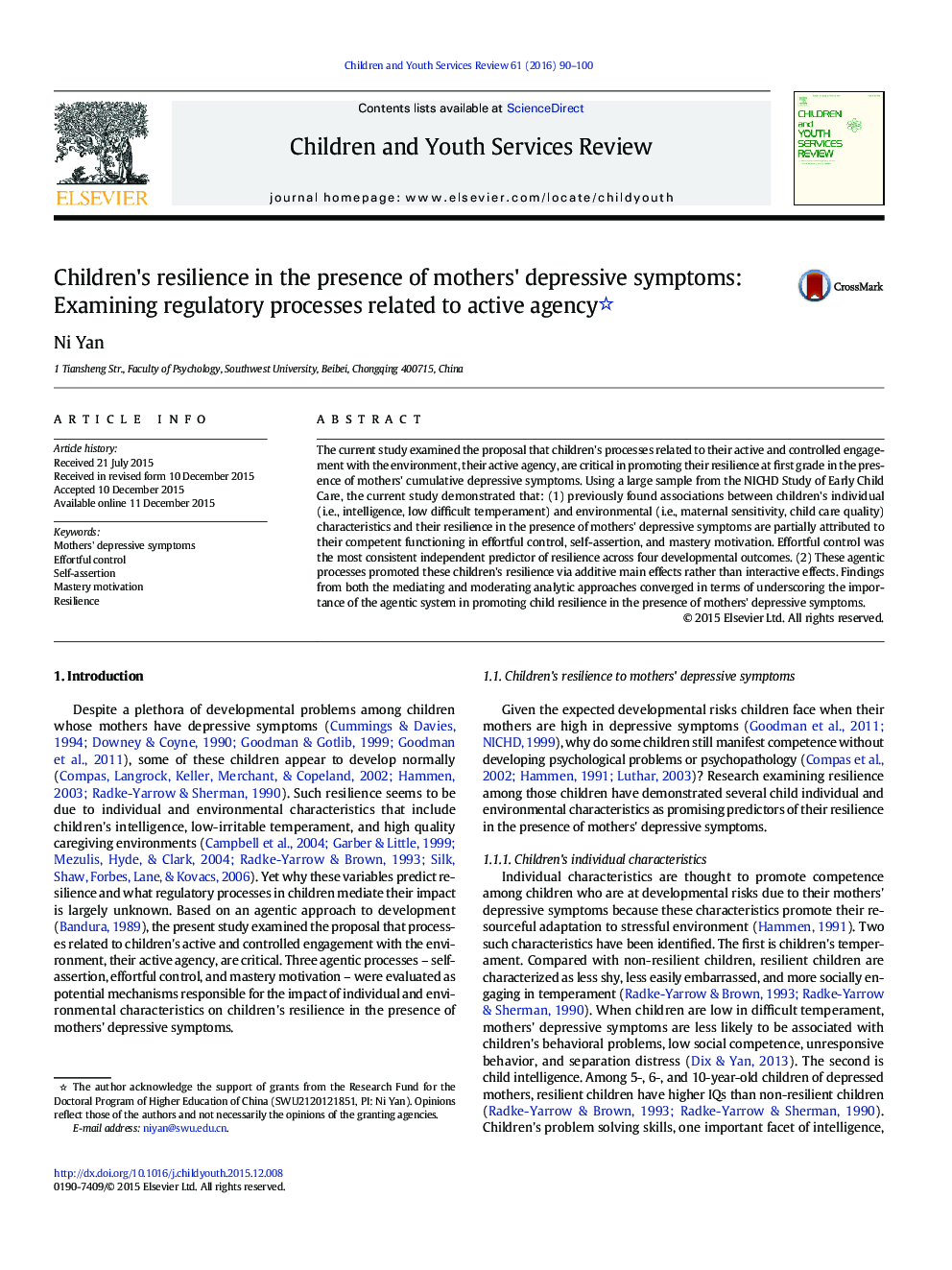| Article ID | Journal | Published Year | Pages | File Type |
|---|---|---|---|---|
| 345878 | Children and Youth Services Review | 2016 | 11 Pages |
•The underlying processes of resilience were examined.•Active agency promoted children's resilience when mothers are high in depression.•Agentic processes were driven by a set of individual and environmental factors.•These agentic processes promoted resilience via additive main effects instead of interactive effects.
The current study examined the proposal that children's processes related to their active and controlled engagement with the environment, their active agency, are critical in promoting their resilience at first grade in the presence of mothers' cumulative depressive symptoms. Using a large sample from the NICHD Study of Early Child Care, the current study demonstrated that: (1) previously found associations between children's individual (i.e., intelligence, low difficult temperament) and environmental (i.e., maternal sensitivity, child care quality) characteristics and their resilience in the presence of mothers' depressive symptoms are partially attributed to their competent functioning in effortful control, self-assertion, and mastery motivation. Effortful control was the most consistent independent predictor of resilience across four developmental outcomes. (2) These agentic processes promoted these children's resilience via additive main effects rather than interactive effects. Findings from both the mediating and moderating analytic approaches converged in terms of underscoring the importance of the agentic system in promoting child resilience in the presence of mothers' depressive symptoms.
